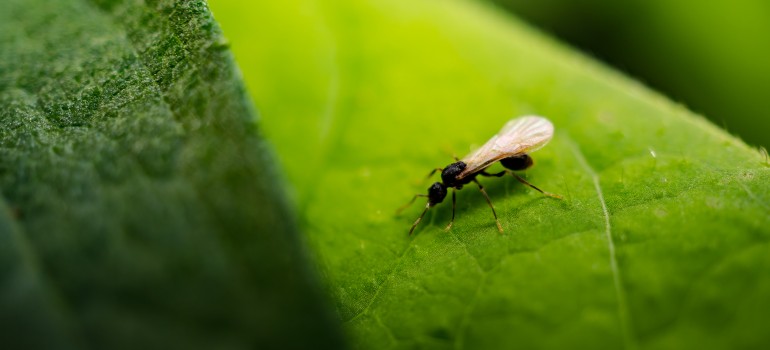
Image source: Charles Andrew Palmer / Shutterstock
Flying ants are a nuisance, especially when they suddenly appear in large numbers. The first step to getting rid of flying ants is understanding what attracts them. From natural remedies to specialised flying ant killers, there are several ways to get rid of flying ants.
Table of Contents
What Are Flying Ants?
Flying ants are regular ants in a specific life stage known as the “nuptial flight.” During this phase, certain ants, both male and female, develop wings and swarm in large numbers to mate and start new colonies.
They are not a separate species but are part of the reproductive cycle of common ant species, such as black ants or carpenter ants. After mating, the males typically die, while the fertilised females shed their wings and seek a suitable place to establish a new nest. This behaviour often occurs in warm, humid weather, particularly after rain.
Why Do Flying Ants Suddenly Appear?
Flying ants suddenly appear during a phenomenon known as “nuptial flight,” which occurs when ants leave their nests to mate and establish new colonies. This typically happens on warm, humid days, often after rainfall, when conditions are ideal for reproduction.
During this time, both male and female ants develop wings and swarm in large numbers, seeking to mate. Once mating is complete, the males die, and the fertilised females lose their wings and begin forming new colonies. This sudden swarming behaviour can make it seem like flying ants appear out of nowhere.
What Attracts Flying Ants In The House?
Flying ants can enter your house for several reasons. Light attracts them, so they often swarm around windows, doors, and light fixtures. Flying ants are also attracted to moisture, making kitchens, bathrooms, and basements attractive, especially if there are leaks or damp conditions.
Flying ants can also be lured indoors by sugary substances like fruit, soft drinks, or crumbs. It is possible for flying ants to enter your home looking for shelter or mating conditions if there are nearby ant colonies.
What Do Flying Ants Eat?
Flying ants eat similar diets to regular ants, depending on their species. Sugary substances, such as nectar, fruit, and honeydew produced by aphids, attract them. Indoors, flying ants feed on sugary spills, sweet foods, or crumbs.
Some flying ants also consume proteins, such as dead insects or small animals. While flying ants are primarily focused on mating during their brief airborne phase, they still seek out food to sustain their energy levels.
Do Flying Ants Bite and Are They Dangerous?
Flying ants do not bite and are generally not dangerous to humans. Flying ants are more of a nuisance than a danger, as their primary focus is mating rather than aggression. They do not carry diseases, and their presence indoors is usually temporary.
How to Get Rid Of Ants in the House
What is the best repellent for flying ants? The best repellents for flying ants include both natural and commercial options:
- Vinegar Solution: A mixture of equal parts vinegar and water can effectively repel flying ants. Spray it around entry points, windows, and areas where ants are frequently seen.
- Essential Oils: Certain essential oils, such as peppermint, tea tree, and lemon oil, are known to repel ants. Mix a few drops with water in a spray bottle and apply it around your home.
- Citrus Peels: Placing citrus peels (like lemon or orange) around entry points can deter flying ants due to their dislike of citrus scents.
- Commercial Ant Sprays: There are various insect repellents specifically designed for ants available in stores. Look for those that contain ingredients like pyrethroids. When using any repellent, ensure you reapply as necessary, especially after cleaning or rain, to maintain effectiveness. And, of course, you can always resort to fumigation or professional fogging services when needed.
- Cinnamon or Cayenne Pepper: Sprinkling these spices around entry points can also act as a natural repellent due to their strong scents that ants dislike.
- Diatomaceous Earth: Lightly dust a thin layer of food-grade diatomaceous earth in areas where you see flying ants or along their trails. When flying ants come into contact with diatomaceous earth, it abrades their exoskeleton and dehydrates them.
Caution: If you are dealing with an ant invasion indoors, remember that it’s not safe to use vinegar on natural stone countertops. Instead, use a regular cleaner for natural stone counters, such as marble or granite.
Check also:
What Is The Best Trap For Flying Ants?
Furthermore, flypaper or sticky tape is another easy way to do so. It is easy to make one yourself. You’ll need just a few items:
- A brown paper bag;
- Tongues;
- Baking sheet and drying racks;
- A saucepan;
- A large spoon;
- Scissors;
- ¼ cup of water;
- ¼ cup honey or sweet syrup;
- ¼ cup of water;
- Cut a brown paper bag into strips.
- Mix equal parts of honey or syrup, sugar, and water in a saucepan over medium heat. Stir until the sugar dissolves.
- Remove from heat and place the strips in the mixture until completely saturated.
- Take the strips out and place them on drying racks over baking sheets.
- Allow the strips to dry completely until they are no longer damp. This can take a few hours, but it shouldn’t be too long.
- Simply place the tape near areas where you’ve noticed ants flying around. Flypaper is an incredibly sticky device that makes it hard for flies and other flying insects to come off once their little legs touch the gluey surface.
Another method of getting rid of these insects is to set ant baits. Ant bait is a sweet substance mixed with borax that disturbs the ants’ breeding cycle. The ants pick up the bait and return it to the colony, where it kills the entire ant population.
You can also apply insecticide dust to kill the ants. While it can be applied by any homeowner, it is best handled by a professional exterminator to ensure that the pesticide won’t harm non-target insects.
Caution: Ant baits are pretty harmless, but it’s still important to take precautions when setting out any. You should keep them away from children and pets. Insecticidal sprays are toxic to animals and should not be approached carelessly. They should only be used on visible ants, and never indiscriminately.
How To Prevent Flying Ants
Preventing flying ants involves reducing the factors that attract them and blocking their entry points into your home. Here are a few effective steps:
- Seal entry points: Inspect and seal any cracks or gaps around windows, doors, and walls to stop ants from getting inside.
- Remove food sources: Keep your home clean by wiping up sugary spills, storing food in sealed containers, and promptly clearing away crumbs.
- Fix moisture issues: Repair any leaks or damp areas, as flying ants are attracted to moisture.
- Turn off lights: Flying ants are drawn to light, so consider keeping outdoor lights off during the swarming season or using curtains to block light from indoors.
- Regular maintenance: Check for signs of ant nests around your home and deal with them early to prevent swarms of flying ants.
How to Get Rid Of Ants in Wall Cavity
Ants can set up residency in any space they find welcoming. If ants are making their home in the walls, this could mean that the foundation is not sound. In other words, ants nesting in walls may be a symptom of a structural problem. And you can probably guess that finding entry points and pest proofing is essential to prevent and eliminate ants.
On that note, pest professionals are trained to identify entry points and can help you find them. Repairs that involve replacing rotted wood and sealing all cracks and gaps will help to prevent ants from making their way into the house.
Are you dealing with a pest infestation?
You don't have to be alone in the battle against pests. Hire a professional pest expert!
Call usHow to Get Rid Of Flying Ants in the Garden
You can grow herbs like rosemary, peppermint, lavender, and lemon balm around your house to keep ants away. These herbs are great for repelling ants and other pests around your home. However, you need to be careful with plants like mint since they can become invasive if not contained and overtake your garden.
Flying Ant Day – a Stunning Nature Spectacle
Winged ants are an impressive sight to behold, but it’s important to acknowledge their presence and not let them intimidate you. In mating season, these ants congregate at specific landmarks. Their behaviour, called “hilltopping,” is an important part of mating rituals.
Because there are so many ants in the same place at the same time, it’s called ‘flying ant day.’ But really, it’s more of a short-flying ant season.
If you see a swarm of flying ants after heavy rain in the UK, most likely, they are looking for a new home. Their flight can last from a few hours to a few days. After mating, the male ant dies. The female queen ant, meanwhile, flies off to start a new colony.
If she survives long enough to find a suitable location, she digs a chamber in the ground and lays eggs. Then, she sheds her wings, which are used as a source of essential nutrients to support their development.
How Long Do Flying Ants Live?
The flying phase of an ant’s life cycle lasts only a few days for males, but the female may continue to fly and seek mates. Some ant queens live as long as 30 years. Adult queen ants spend most of their time in their nest. As mentioned above, only for a small portion of their lives they are winged or flying ants.
“Know When You’ve Been Beaten”
If you’re desperate for help, don’t struggle on your own but call an exterminator. Ants often appear in outbreaks, so ant pest control companies can quickly address this insect nightmare.
Sometimes, this may be the only solution if your infestation is extensive, as proper pest control methods can resolve the issue in the event of a severe ant invasion. The only way to rid your house of all the ants is to attack the colony where they are nesting.

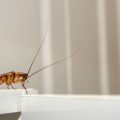


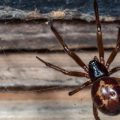
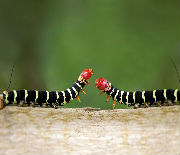
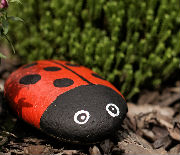
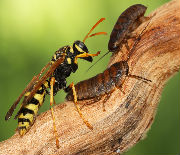
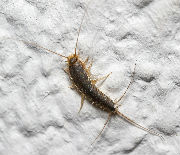
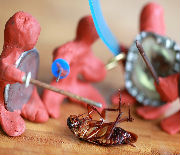
They are not bad all you need to do is not haf your light on and don’t kill them just leave them be and close the windows